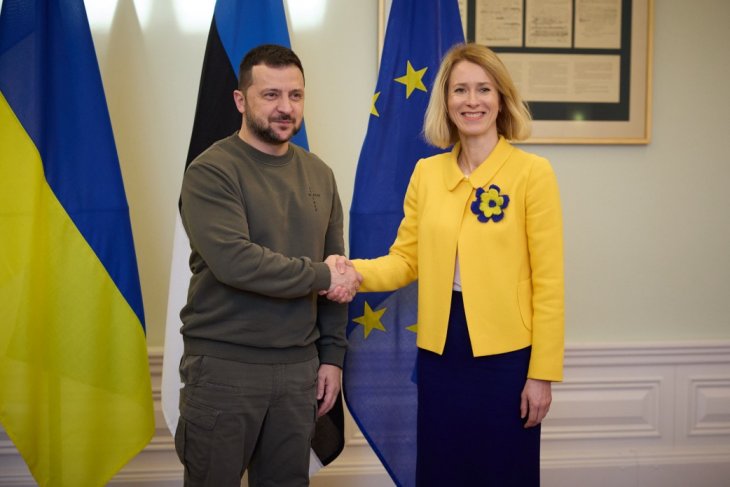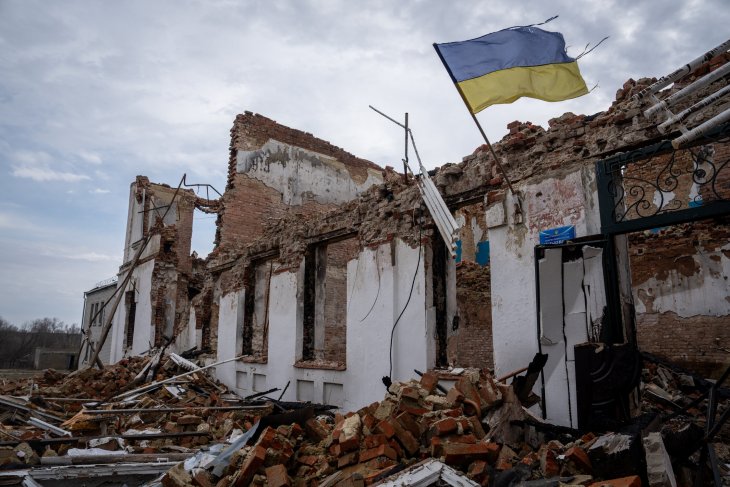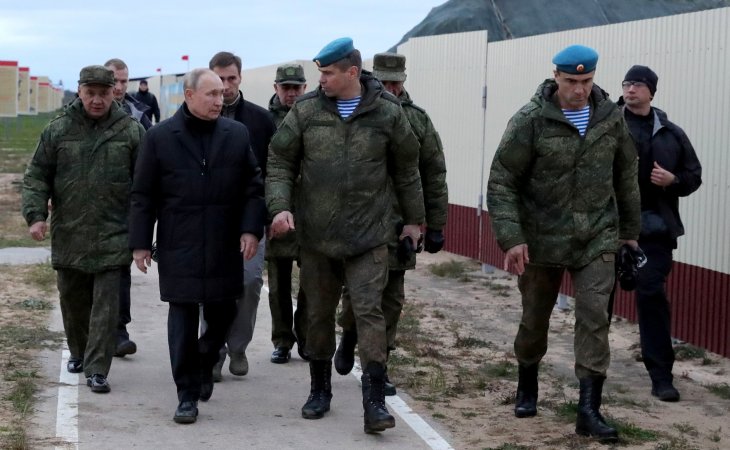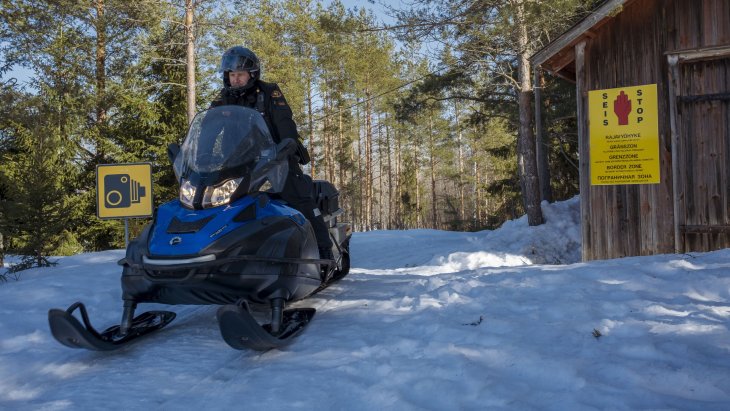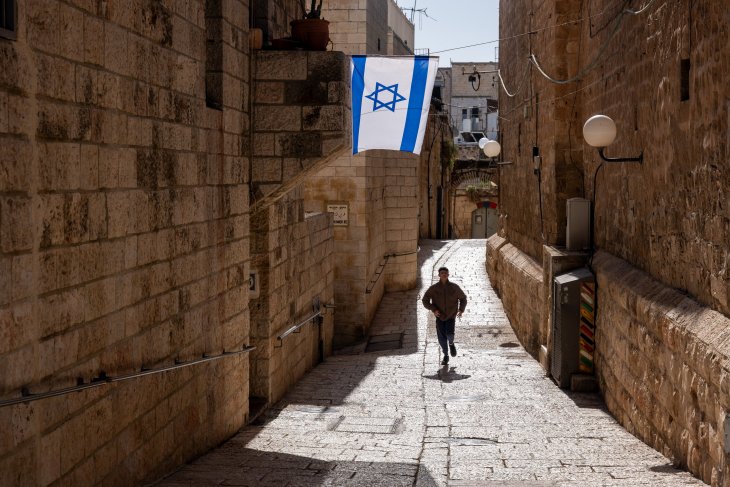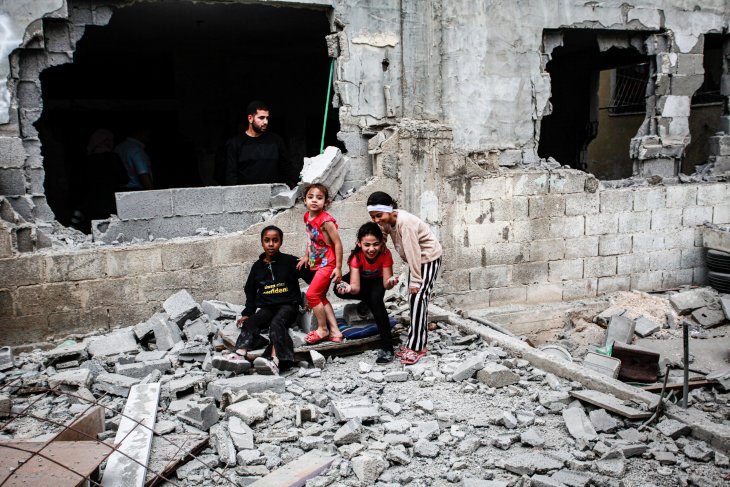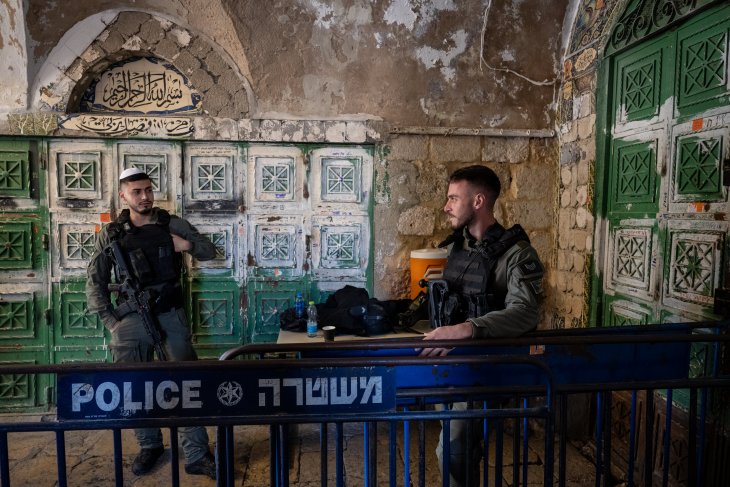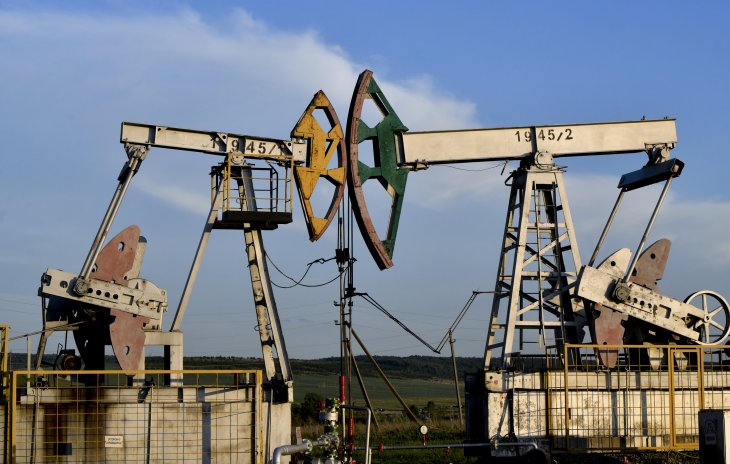Today it is still the case that neither side seems to possess the military capability needed to end the war to its advantage, but there is also no prospect of peace negotiations anytime soon. Ukraine’s summer offensive did not alter the overall state of the war. From the perspective of military history, there is nothing unique about this situation, says lieutenant-general Arne Bård Dalhaug in this reflection.
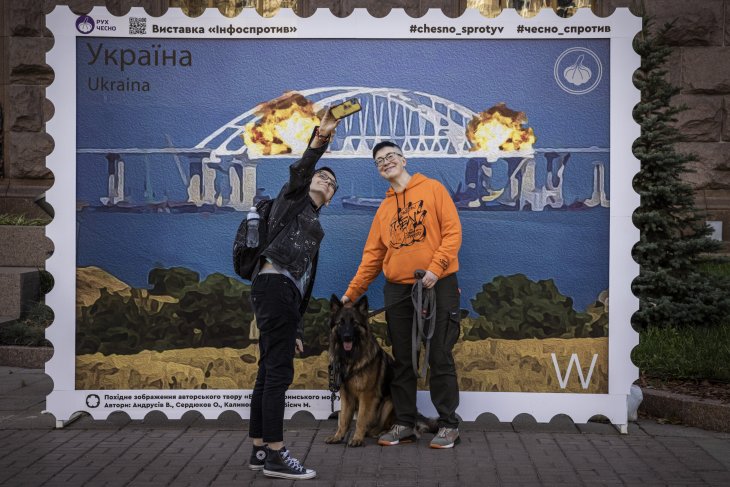
“While the whole of the Crimean Peninsula is of interest in this context, the bridge over the Kerch Strait is of particular importance”. In this picture, people in Kyiv take selfies in front of an image of a stamp showing explosions on the Kerch Bridge on October 11, 2022. Photo: Ed Ram / Getty Images
